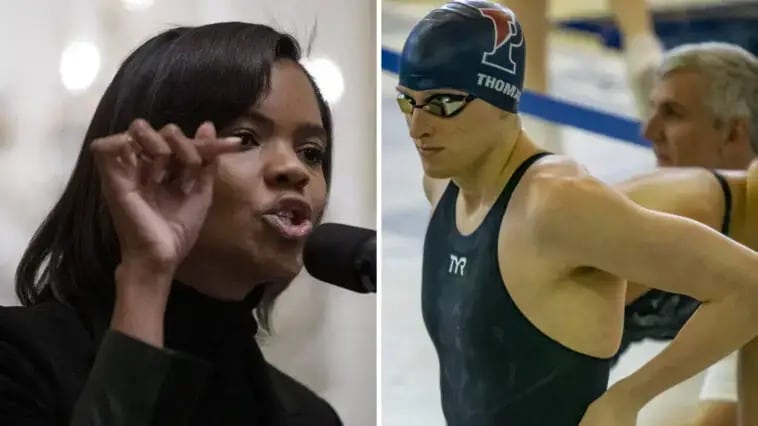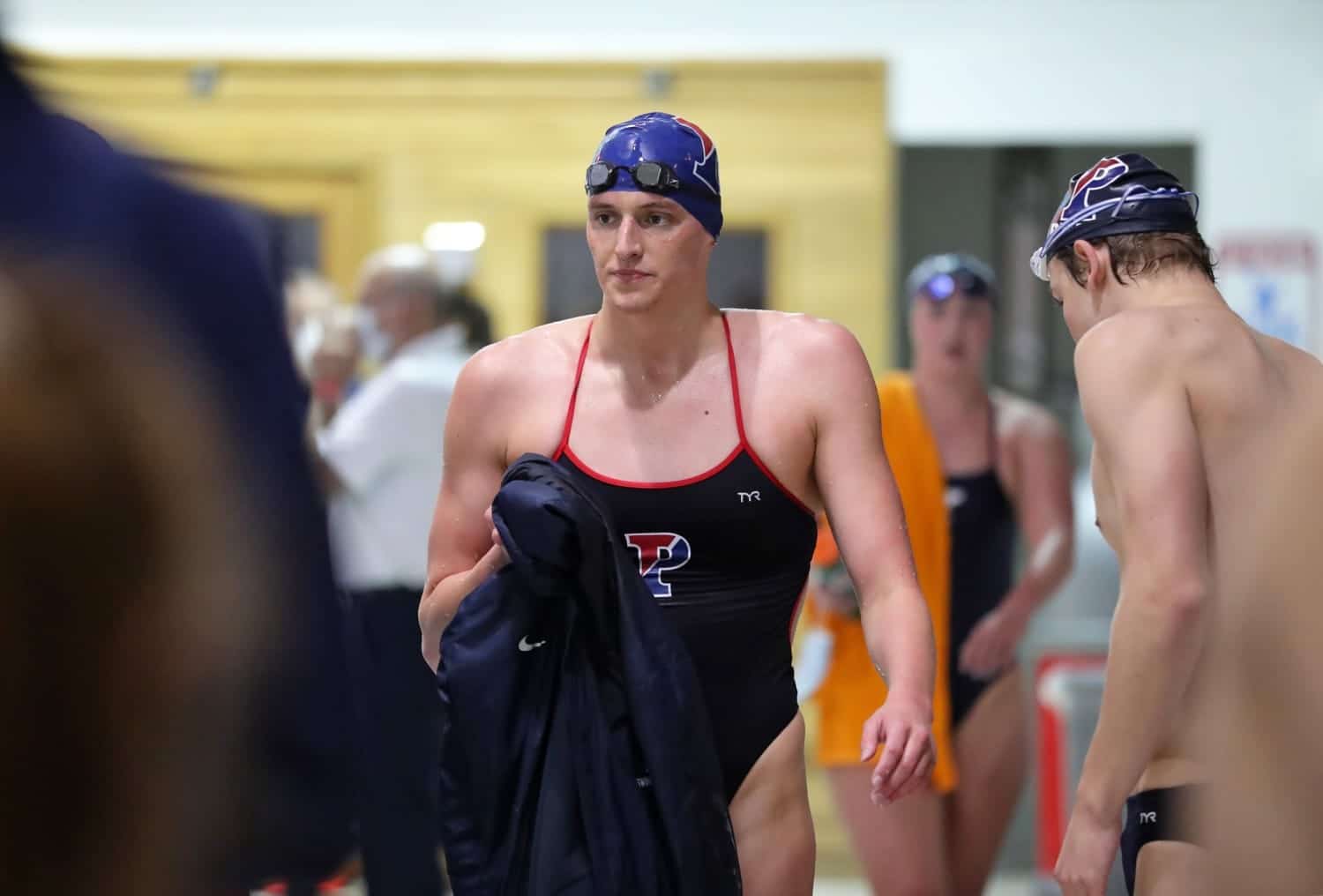Candace Owens Sparks Controversy with Call to Ban Lia Thomas from Women’s Sports
Political commentator Candace Owens is no stranger to controversy—and her latest remarks are reigniting a fierce national debate. This time, the focus is on Lia Thomas, the transgender swimmer whose record-breaking performances have made her a lightning rod in the ongoing conversation about gender and fairness in sports. Owens’s stance? Thomas, and athletes like her, should be banned from competing in women’s divisions.

A well-known conservative voice, Owens argues that gender identity shouldn’t override what she sees as an unavoidable biological advantage. Like many on the political right, she frames her position around the idea of protecting fair competition—claiming that male-born athletes, regardless of hormone therapy or transition status, retain physical benefits that create an uneven playing field.
“It’s About Biology, Not Identity”
At the heart of Owens’s argument is a call to preserve what she describes as the integrity of women’s sports. She insists that separating athletes by biological sex is the only way to ensure true fairness. From higher bone density to greater muscle mass and lung capacity, Owens argues that physiological differences give transgender women an edge that can’t be erased by hormone treatments alone—especially for those who transition after puberty.
Lia Thomas, who transitioned and began hormone therapy before competing in NCAA women’s swimming events, has been at the center of this cultural and scientific tug-of-war. Her victories in the pool have fueled claims of unfairness, despite compliance with existing NCAA rules and medical guidelines for transgender athletes.
A Divisive Debate

Supporters of Owens’s position believe she’s speaking hard truths others are afraid to say. They view her stance as defending opportunities for cisgender women and preserving the meaning of female athletic achievement. Some feminist groups and women’s sports advocates have echoed these concerns, calling for clearer boundaries to maintain fairness.
On the other side, critics say Owens’s rhetoric is exclusionary and harmful. LGBTQ+ rights advocates argue that such views reduce transgender athletes to biological stereotypes and ignore the medical, emotional, and bureaucratic hurdles they face. They also point out that athletic performance is shaped by far more than hormones—factors like training, mental fortitude, and access to resources all play crucial roles.
Moreover, many believe the conversation isn’t just about sports—it’s about societal inclusion. Banning transgender athletes from competing according to their gender identity, they argue, sets a dangerous precedent and deepens existing stigmas.
More Than Just a Sports Issue
While Owens calls for a blanket ban, others are pushing for more nuanced solutions. Some suggest individualized evaluations, performance thresholds, or the creation of additional divisions or open categories to address the issue without sidelining transgender athletes entirely.
What’s clear is that the world of sports, much like society, is still grappling with how to define fairness in the context of evolving understandings of gender. Owens’s voice is one of the loudest in this debate—but it’s far from the only one.
Final Thoughts

Candace Owens’s call to ban Lia Thomas from women’s sports underscores how deeply divided public opinion remains on this issue. Her critics see it as discriminatory. Her supporters see it as common sense. And caught in the middle are athletes, officials, and fans navigating one of the most complex and emotional debates in modern sports.
Regardless of where one stands, the conversation is far from over. As society continues to wrestle with questions of identity, fairness, and inclusion, the importance of empathy, science, and respectful dialogue cannot be overstated.